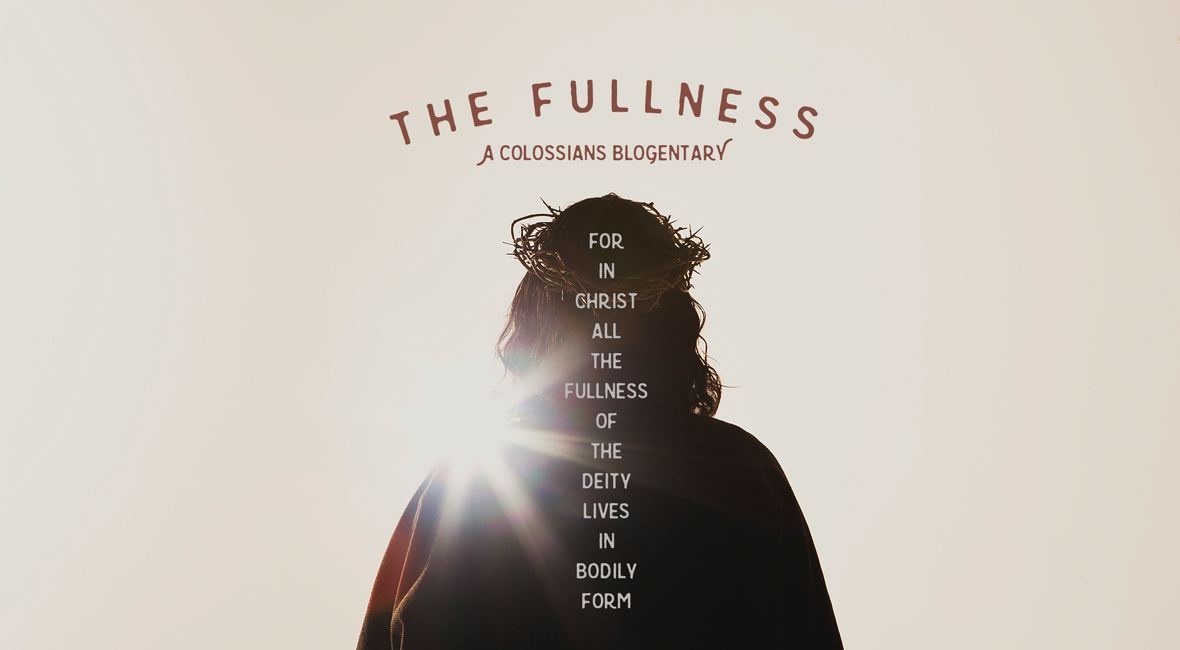The Fullness: Colossians 2:1-5

Struggling for the Saints – 2:1-5
1 I want you to know how hard I am contending for you and for those at Laodicea, and for all who have not met me personally. 2 My goal is that they may be encouraged in heart and united in love, so that they may have the full riches of complete understanding, in order that they may know the mystery of God, namely, Christ, 3 in whom are hidden all the treasures of wisdom and knowledge. 4 I tell you this so that no one may deceive you by fine-sounding arguments. 5 For though I am absent from you in body, I am present with you in spirit and delight to see how disciplined you are and how firm your faith in Christ is.
Paul continues his use of the athletic metaphor from the end of chapter one by using the word “contending” to describe his work for the churches. He is not simply putting in his hours; he is actively engaged in a competition, of sorts, on behalf of the Gentile churches. As he says in Ephesians 6, Paul recognizes that he is not contending against other human beings (as tempting as it may be, at times, to think of it that way), but against the cosmic forces of darkness that are manifest in temptation to sin and heretical teaching.
As Paul uses the metaphor of athletic competition, it is important to ask what winning looks like for him. When Paul envisions a victorious church, he sees three elements, each building upon the previous:
- Unity in agape love and encouragement in heart;
- Possession of the full riches of complete understanding;
- Knowledge of the mystery of God, who is Christ.
A unified and encouraged church is a victorious church that is capable of possessing, together, the vast wealth of complete understanding and knowing, in a full and radical way, the mystery of God, who is Christ our Lord. In contrast, a divided and discouraged church cannot access the glorious storehouses of knowledge available in Christ Jesus. Paul’s hope for the church in Colossae (and the church in Laodicea, and elsewhere), was that the congregation would be united in the self-giving love of Jesus, and through this love, mutually enacted every day by and to each member, to come to the full, lived knowledge of Christ. This is a high calling, and not one that can be accomplished by any single member. “Christ’s love for them provided a basis for unity and formed a common bond between them. Christian growth is a group task! The individuals of the church needed each other.”[i]
God’s great mystery is Jesus, and this mystery has been revealed to all people.
As Paul did in the previous chapter, he is calling the Colossians to search for wisdom and knowledge in Christ, and not in other philosophies or religions. He is concerned, as any good pastor would be, that the believers under his care not be enticed away from the true faith by fine-sounding arguments – teachings which have the ring of truth but do not possess or reveal the core of the faith, which is Christ himself. “From long experience [Paul] knows that a work of grace is followed by an attack from the enemy, and that one regular form this attack may take is the clever plausibility of teaching near enough to the truth to be apparently respectable and far enough away from it to be devastating in its effect on individuals and congregations.”[iv] Wherever the Lord is active in truth, the enemy may also be found attempting to spread deceit and create division.
Jesus is both the fullness and the mystery of God
The Takeaway
There is an exclusivity in Christ because, as Paul claims, Jesus is both the fullness and the mystery of God. In him alone can be found the vast hidden wealth of the knowledge and wisdom of God. Though we may search for these treasures in science, politics, love, art, or other religions, they can never possess the fullness of the understanding God has revealed in Christ. Though the world is full of fine-sounding arguments that may lead us to diminish the role of Christ in the cosmos, we must resist this temptation, instead clinging to the message of Colossians that all the fullness of God resides in the body of Jesus. Science and politics, love and art may all have their appropriate place in life, but none can claim the place of supremacy which Christ alone can claim.
[i] Melick, R. R. (1991). Philippians, Colossians, Philemon (Vol. 32, p. 245). Nashville: Broadman & Holman Publishers.
[ii] Ibid.
[iii] Zahnd, Brian. (2012). Beauty will Save the World. Lake Mary, FL: Charisma House. (p. 210)
[iv] Wright. Colossians and Philemon (p. 99).

